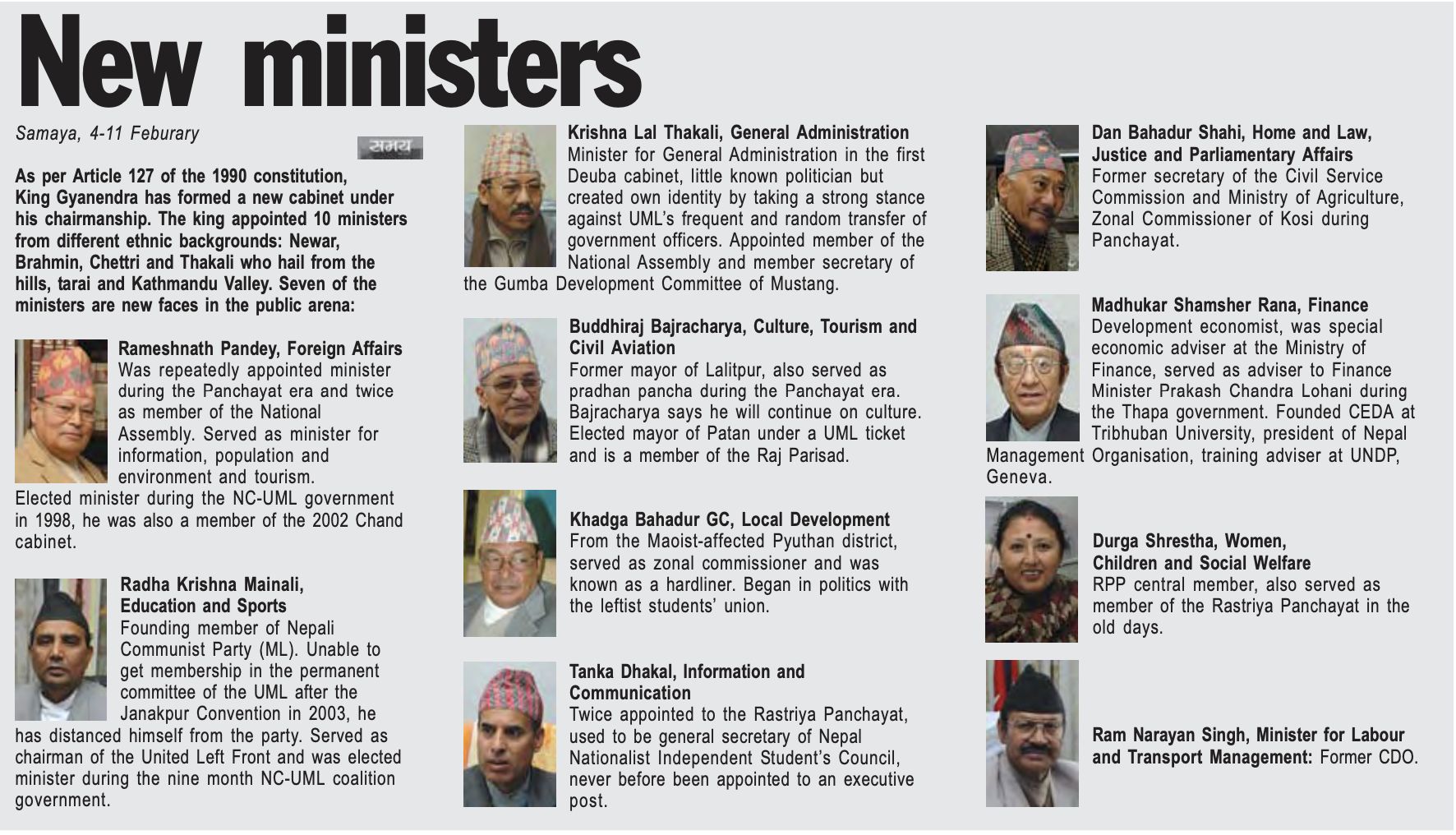2005
1 February, 2005. 10AM. King Gyanendra went on Nepal Television with a Royal Proclamation saying he was taking over. He criticised the political parties, condemned the Maoists, and sacked Prime Minister Sher Bahadur Deuba. Telephone, mobile, and internet lines went dead and the airport was closed. Civil society activists, politicians and others were arrested from their homes. A State of Emergency was declared and the king took up emergency powers, declaring that he would chair a handpicked council of ministers for up to 3 years (pictured).
The declaration included the suspension of the freedom of speech, assembly, the right to property, information and against preventive detention.
‘His Majesty’s Government has banned for six months any interview, article, news, notice, view or personal opinion that goes against the letter and spirit of the Royal Proclamation on 1 February 2005 and that directly or indirectly supports destruction and terrorism,’ read a notice in Gorkhapatra on 3 February.
FM radio stations were only allowed to broadcast music, not news. So some news readers started singing the news in duets from the studio. Army censors were sent to newsrooms to vet copy. Nepali Times went to press with white holes where the soldiers had instructed us to delete paragraphs, cartoons or entire columns.
The editorial on issue #233, 4-10 February was about trees giving oxygen -- as a metaphor for democracy and free press. Excerpt:
‘The sudden epidemic of tree-felling along Kathmandu’s streets is drastic, misguided and not consonant with the needs of the population...The role of trees is to introduce oxygen into the atmosphere and to ingest the carbon dioxide that human and mechanical activity spews into our enclosed airspace.
They provide shade to the pedestrian, a demographic category which today is highly neglected by our increasingly motorised urban populace. Tree-lined boulevards and parks are the mark of any civilised society and the colour of leaves and bark have associations in the human mind with the very evolution of the species. Take away the trees from our sight and senses and our very existence suffers.’

The Nepali Times masthead started to carry a fuel guage to indicate to readers the degree of censorship of that edition. An ‘Empty’ gauge signified that the issue was relatively free of censorship.
The royal-military coup was not altogether a surprise, and there was some support for it because people were fed up with the shenanigans of the political parties, and the violence unleashed by the Maoists.
Reader Ranjit Rauniyar wrote:
‘It is easy to decry the overthrow of an elected government and express concern about the suspension of civil liberties. I, like all Nepalis, will be watching closely to see how King Gyanendra wields the sweeping powers he has assumed.
But I hope the rest of the world, before rushing to instant judgement, will pause to consider how far Nepal had gone down the path towards becoming a failed state, before the king resorted to such desperate measures.’




